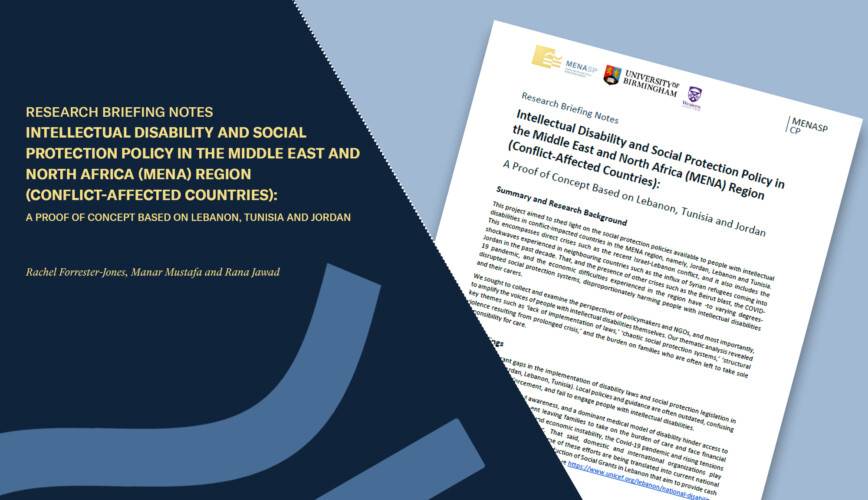This project aimed to shed light on the social protection policies available to people with intellectual disabilities in conflict-impacted countries in the MENA region, namely, Jordan, Lebanon and Tunisia. This encompasses direct crises such as the recent Israel-Lebanon conflict, and it also includes the shockwaves experienced in neighbouring countries such as the influx of Syrian refugees coming into Jordan in the past decade. That, and the presence of other crises such as the Beirut blast, the COVID-19 pandemic, and the economic difficulties experienced in the region have -to varying degrees- disrupted social protection systems, disproportionately harming people with intellectual disabilities and their carers.
We sought to collect and examine the perspectives of policymakers and NGOs, and most importantly, to amplify the voices of people with intellectual disabilities themselves. Our thematic analysis revealed key themes such as ‘lack of implementation of laws,’ ‘chaotic social protection systems,’ ‘structural violence resulting from prolonged crisis,’ and the burden on families who are often left to take sole responsibility for care.
DOI: 10.48352/uobxmenasp.0025
Authors:
Rachel Forrester-Jones, Director and Professor at the School of Health Studies (Western University), Manar Mustafa, Research Assistant at the School of Health Studies (Western University)and Rana Jawad, Professor of Global Social Policy & Head of Research at the School of Social Policy and Sociology (University of Birmingham)
This project is supported by the Middle East and North Africa Social Policy Network (MENASP) at the University of Birmingham, in the framework of its ‘strengthening social welfare and security in the MENA region’ research programme, funded by the UK Arts and Humanities Research Council’s Global Challenges Research Fund.
Disclaimer: The opinions expressed in this publication are those of the authors. They do not purport to reflect the opinions or views of the Middle East and North Africa Social Policy (MENASP) Network or the University of Birmingham.
